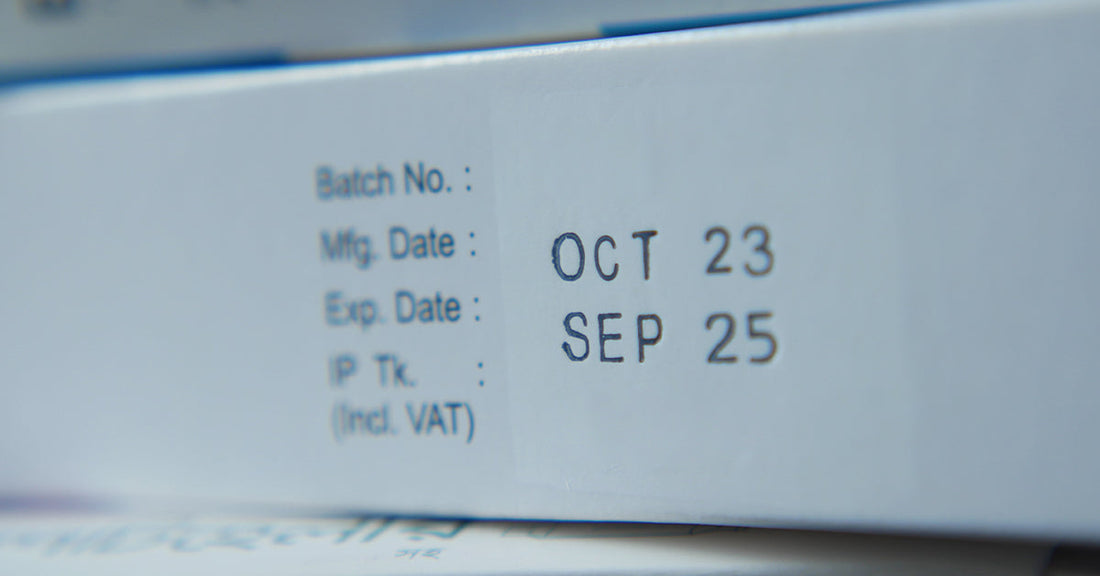
The Importance of Regularly Checking Expiration Dates on Medications
Share
We’ve all been there—digging through the medicine cabinet or your travel bag and finding an old bottle of medication that you forgot about. Maybe it’s that asthma inhaler you haven’t used in months or an EpiPen from last allergy season. Whatever the case, the thought of “Can I still use this?” often crosses our minds. But the truth is, checking the expiration date on medications is more than just a suggestion; it’s a vital step in ensuring your health and safety.
What Does an Expiration Date Really Mean?
Every medication comes with an expiration date. This date represents the manufacturer’s guarantee that the drug will remain fully potent and safe to use up until that point, provided it’s stored under proper conditions. After the expiration date, the drug’s effectiveness starts to wane, and in some cases, it could even become harmful.
So, why do manufacturers set this expiration date? Simply put, medications are made of chemical compounds, and over time, these compounds can degrade. Exposure to light, heat, or moisture can speed up this process, even if the medication is stored properly. By setting an expiration date, manufacturers ensure you’re getting the intended therapeutic benefit from your medicine.
What Happens If You Use Expired Medication?
Using expired medication can have various consequences depending on the type of medication and how long it has been expired. For instance, an expired EpiPen may no longer deliver the right dose of epinephrine, which could be life-threatening in the case of a severe allergic reaction. Similarly, expired asthma inhalers may not relieve symptoms adequately, leading to poor control of asthma attacks.
In other cases, the issue might be more about effectiveness. For example, pain relievers like ibuprofen or acetaminophen may become less potent, making them less effective in treating headaches or muscle pain. While this may not pose a direct threat to your health, it can result in prolonged discomfort.
The Risks of Relying on Expired Medications in an Emergency
When you rely on medication to control a chronic condition or respond to an emergency—like an allergic reaction—having expired meds is risky. The last thing you want is to discover that your epinephrine auto-injector, inhaler, or other essential medicine has lost its potency when you need it most.
For people with allergies, this is especially critical. EpiPens, for instance, can degrade over time, leaving you with an injector that delivers a subpar dose. This can be dangerous because, during anaphylaxis, every second counts, and you need the full strength of the medication to counteract the reaction.
Why Regular Checks Matter
Life gets busy, and it’s easy to forget about those prescription bottles sitting in your bag or medicine cabinet. But making a habit of regularly checking your medications for expiration dates can prevent emergencies before they happen. Set a reminder every six months to do a sweep through your medicine cabinet, first-aid kit, and any travel bags where you store medication. This practice ensures that you’re always prepared, whether you’re at home or on the go.
Not only will checking regularly help you avoid expired medications, but it also gives you a chance to restock essentials like allergy medications, pain relievers, or cold medicines before you find yourself without them.
How to Properly Dispose of Expired Medications
You may be wondering what to do with those expired meds once you’ve discovered them. It’s crucial not to simply throw them in the trash or flush them down the toilet. Medications can contaminate the water supply and pose risks to wildlife and the environment.
Most communities have drug take-back programs or events where you can safely dispose of expired or unused medications. If a take-back program isn’t available, consult your pharmacist about the best way to dispose of your specific medications.
Practical Tips for Keeping Track of Medication Expiration Dates
To make life easier, you can create a simple system to track medication expiration dates. For instance, consider organizing your medications by placing the soonest-to-expire items at the front of your cabinet or bag. You can also keep a list of your medications along with their expiration dates so you don’t have to hunt for them later.
There are also mobile apps available that can help you track expiration dates and send reminders when it’s time to replace your meds. This is particularly useful for busy individuals or families managing multiple medications.
Stay Prepared: Stocking Replacements Before They Expire
If you have medications that are critical to your health, like EpiPens or asthma inhalers, it’s a good idea to keep extra supplies on hand. Make it a point to restock well before your current supply expires to avoid running into a situation where you don’t have access to necessary medications.
Your health and safety should always be a priority, and having fresh, unexpired medications ensures that you’ll be ready when you need them most.
Conclusion: Making Medication Expiration Checks a Lifelong Habit
Regularly checking medication expiration dates may seem like a small task, but it plays a significant role in ensuring your overall health and safety. Whether you’re managing chronic conditions like asthma or preparing for the unexpected with an EpiPen, staying on top of expiration dates means you can rely on your medications to work effectively when you need them.
Incorporating these checks into your routine takes minimal effort but yields maximum benefits. So next time you come across that old bottle or injector, take a moment to check the date—it could make all the difference in an emergency.
